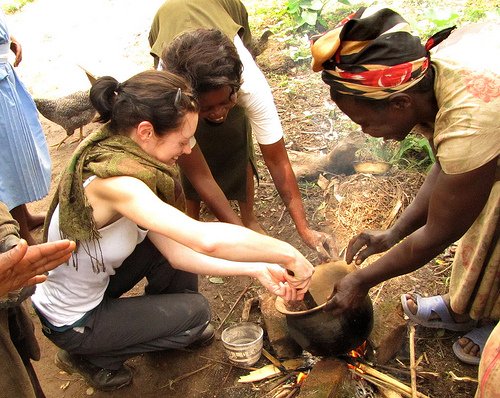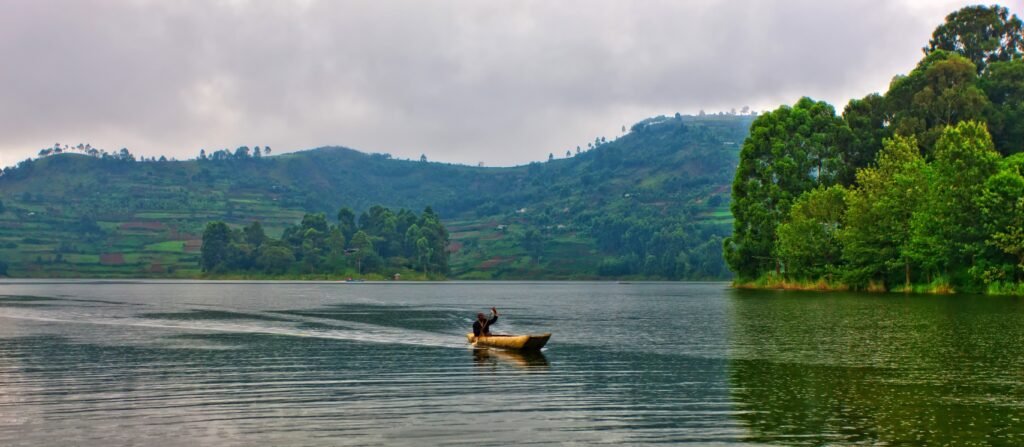How Sustainable Tourism Supports Local Communities in Uganda: 7 Powerful Benefits You Need to Know
How Sustainable Tourism Supports Local Communities in Uganda – An Introduction
Sustainable tourism has emerged as a powerful tool for transforming lives in Uganda’s rural communities. From the lush landscapes of Lake Bunyonyi to the gorilla habitats of Bwindi, responsible tourism practices are helping communities rise above poverty, preserve their heritage, and build a more sustainable future. In this blog, we explore in detail how sustainable tourism supports local communities in Uganda and why it matters now more than ever.

How sustainable tourism supports local communities in Uganda-Economic Empowerment of Local Families
One of the clearest examples of how sustainable tourism supports local communities in Uganda is through direct job creation. Local residents become guides, porters, chefs, and hospitality managers. For instance, in Kabale, tour companies like Amatsiko Tours hire and train local youth to lead village walks and nature hikes. These jobs offer steady income in regions where formal employment is scarce.
Visitors who buy crafts, honey, or coffee grown by locals also inject income directly into village economies. Farmers are trained to supply eco-lodges, and women’s groups sell handmade baskets and fabrics at fair trade prices.
“Before tourists came, we had no market for our crafts,” says Janet, a weaver in Buzaniro. “Now we can pay school fees for our children.”
Preservation of Cultural Heritage
Travelers come to Uganda not just for wildlife, but to experience vibrant traditions—music, storytelling, rituals, and cuisine. Through community tours and home stays, travelers gain insight into the daily life and values of rural Ugandans.
This cultural exchange helps preserve traditional knowledge, which might otherwise disappear in the face of modernization. Tour guides often include elders who share oral histories, and youth groups perform dances handed down through generations.
Cultural tourism also boosts pride among locals who see their customs appreciated by global visitors. Learn more about our cultural heritage tours.
Environmental Conservation and Community Stewardship
Sustainable tourism helps Ugandans become guardians of their natural resources. Communities near national parks like Bwindi and Queen Elizabeth are engaged in eco-conservation programs, funded by park entry fees and visitor donations.
These include:
- Tree planting initiatives
- Wildlife monitoring
- Waste reduction campaigns
- Renewable energy adoption in lodges
At UNWTO, experts emphasize how involving locals in tourism fosters long-term stewardship. People protect what they benefit from—and tourism gives them reason to preserve Uganda’s breathtaking landscapes
Strengthening Education and Healthcare Services
Revenue from tourism also supports community development. In Kabale, proceeds from guided tours help fund Amatsiko Preparatory School, which educates over 400 children, including orphans and those with disabilities.
Some tour packages include optional volunteering days, where guests teach English, share music, or help with school gardens. Others sponsor clean water projects or medical outreaches to remote villages. This is a tangible way how sustainable tourism supports local communities in Uganda—by enhancing long-term well-being.
“Tourism helped us build a classroom and buy textbooks,” says Alex Atuheire, founder of Amatsiko Organisation. “It’s changing lives.”
Fostering Gender Equality and Youth Engagement
Sustainable tourism unlocks new roles for women and youth. In many rural areas, women have limited access to income-generating opportunities. However, with tourism, they run guesthouses, make crafts, or lead cooking classes.
Meanwhile, student-led tourism labs at Amatsiko Preparatory School expose children to future careers in hospitality, guiding, conservation, and customer service. By engaging youth early, communities create a pipeline of skilled professionals ready to shape the future of Ugandan tourism.
Infrastructure Development and Improved Quality of Life
As tourism grows, governments and private operators invest in roads, electricity, and water access. These improvements benefit not just tourists—but entire communities.
In the Lake Bunyonyi region, new roads built for tourism now allow farmers to reach markets faster and women to access health clinics more easily. Tour-supported water tanks provide clean drinking water to villages that once relied on distant, unsafe sources.
This is a clear example of how sustainable tourism supports local communities in Uganda through shared infrastructure development.
Building Community Resilience and Long-Term Sustainability
Finally, sustainable tourism helps diversify income sources. Many Ugandan communities rely heavily on farming, which is vulnerable to climate change. Tourism provides a buffer—offering a consistent income stream when crops fail.
Tourism also encourages planning and cooperation. Many villages form community tourism committees to manage funds, train members, and ensure fair benefit-sharing. This fosters resilience, accountability, and sustainability at the grassroots level.
Explore our full community-led initiatives to see how locals are shaping their future through tourism.
Conclusion – Your Role as a Responsible Traveler
Travelers who choose ethical operators and engage with communities make a real difference. Whether you book a gorilla trek, stay in a homestay, or join a volunteer program, your presence can uplift communities and protect nature.
Join Amatsiko Tours in creating life-changing journeys that matter—for travelers and for the people of Uganda.







